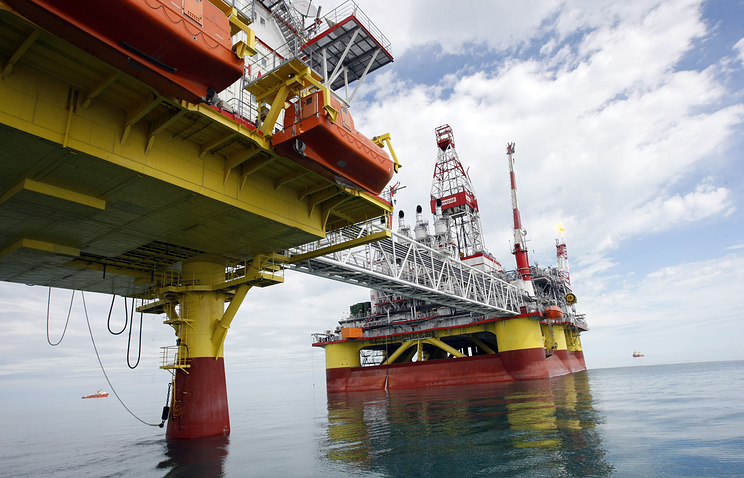Russia’s oil companies under the auspices of the Energy Ministry may sign a joint protocol on stabilizing oil production, and Lukoil is ready to do it, its CEO Vagit Alekperov told reporters on Friday.
“If we want to participate in the process, we should take an active position and like them stabilize the production due to signing a joint protocol under the auspices of the Energy Ministry by all companies and on production volume on a certain date. Our company is ready for this,” Alekperov said.
Alekperov said the rules should be designed at the level of the ministry as it has proposed this initiative.
“I think at this stage we are speaking only about stabilization. The rates of decrease in Russia’s output are significant. Gigantic resources are needed for stabilization. That’s why we are interested in (stabilization),” he said.
The agreements reached by OPEC on stabilizing oil output will contribute to keeping the oil price at the level of $50 per barrel rather than to its growth:
“The price is already above $50 (per barrel), this is the price that makes investments in shale oil and gas efficient. It stabilizes at the level of $50 and we will wait for the November meeting.”
OPEC member nations, which gathered for an informal meeting in the framework of the 15th international energy forum in Algiers, reached an agreement on Wednesday to freeze daily crude oil output at 32.5-33 million barrels. According to OPEC President Mohammed Bin Saleh Al-Sada, a special commission will be set up within OPEC to set individual production level for each of the organization’s member countries.
Crude production and tax policy
Russia’s crude production will stabilize in 2017 while in 2018-2019 it may drop in case the tax burden on the sector is further raised:
“Decreasing investment has resulted in a situation where we’re going to face stabilization or a production decline if this policy persists. I don’t want to be negative in my forecasts but already in 2017 we expect stabilization since the additional bite of 200 bln rubles from the sector is big money, and we’ll first of all reduce investment in exploration and field infrastructure development,” Lukoil CEO said, adding that “in 2018 and 2019 production will drop.”.
Contracts with Iran
Lukoil may start discussing the contract with Iran for the development of two fields in May 2017, Alekperov told reporters.
“We had a meeting with the Oil Minister in Iran. We are discussing with them the memorandum on the basic principles. It includes two specific fields – Mansuri and Ab-Teymur. We hope that the legislation will be approved by the end of the year. In October – November 2016 we will present the basic principles and before May 2017 and we in May will be ready to discuss the details of the contract. As for signing of the contract, it will be in October – November next year,” he said.
Contracts with Iraq
Lukoil also expects to reach an agreement with Iraq on changing the terms of contracts in the first half of next year:
“On October 6 I will meet in Baghdad with the Minister of Oil of Iraq. We begin the next stage of negotiation. We are satisfied with the way the negotiations are going. Most likely the talks will be long. According to our plan, in the first half of next year we will come to certain agreements,” Lukoil CEO said.
Alekperov noted that the proposals of Lukoil to change the contracts aimed mainly at obtaining additional income in the country’s budget. “We understand the difficulties that the people of Iraq are going through, but we still believe that the questions posed by our company and other contractors, aimed at obtaining additional funds in the budget of Iraq – they are the main beneficiaries. We get our $1.2 per barrel, the rest belongs to the people,” he said.
Alekperov also said that the Iraqi government has a question about increasing production volumes. “We have started a new investment cycle, we decided to drill 25 new wells. So far, we do not accept investments to develop fields Yamamah This is 6.5 billion dollars of investment in Yamamah deposit. We will be ready to invest after the settlement of the issues on the contract,” he said.
West Qurna-2 is located in southern Iraq, 65 km Northwest of the major port city of Basra. The field was discovered in 1973 and explored (using 2D seismic acquisition and exploration drilling technologies) by Soviet geologists in 1970s and 1980s.
